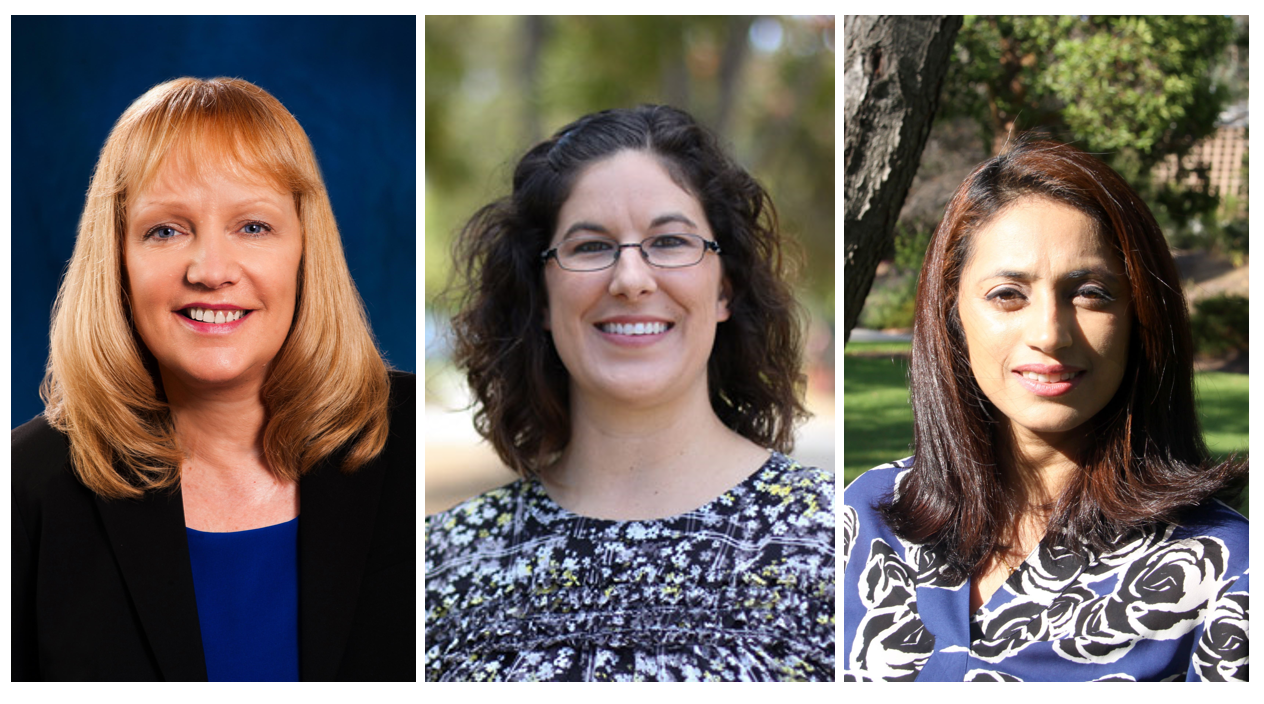Faculty Spring Research Spotlight
This week we’re putting a spotlight on recent faculty research! Three Coms faculty members published new works of original scholarship, Dr. Dhillon, Dr. Hudson, and Dr. Kolodziejski. Congrats on sharing your work with the community!
In Dr. Dhillon’s collaborative study, her research team published an article in Communication Monographs titled Exploring the effects of pillow talk on relationship satisfaction and physiological stress responses to couples’ difficult conversations:
This study examined the effects of pillow talk (i.e., communication after sexual activity) on relationship satisfaction and physiological stress responses to difficult conversations. Fifty heterosexual couples were randomly assigned to either a pillow talk condition in which they doubled their pillow talk for three weeks or a control condition. After three weeks, participants came to the lab to engage in a conflict conversation. Saliva samples taken before and after the conversation were assayed for cortisol, a physiological marker of stress. The results indicate that increased pillow talk produces greater relationship satisfaction for men (but not women), but does not benefit either group’s physiological stress responses. The findings suggest that pillow talk has distinct benefits for romantic relationships.
In Dr. Hudson’s research, she studied Cal Poly’s TIDE program and published her findings in the International Journal for Scholarship of Teaching and Learning in an article titled An In-Depth Look at a Comprehensive Diversity Training Program for Faculty:
This ethnographic research project examines a five-month diversity training program that 16 faculty participated in voluntarily at a university in the western United States. In addition to reviewing diversity issues and challenges in higher education, this article provides information about the program, describes my participant-observer experience, and provides evidence that assesses the program’s effects on teaching practices. This annual program includes learning, reflection and application and helps the participants develop new inclusive teaching strategies for the courses they teach. A post-program survey of the participants indicates that the majority felt that the program had a lasting beneficial effect on their teaching practices, and the results include specific inclusive teaching strategies that faculty can use in the classroom.
In Dr. Kolodziejski's study, she published her research in Rhetoric in Health and Medicine, which was recently voted "Best New Journal" by the Council of Editors of Learned Journals. Her study was titled Beyond the “hullabaloo” of the vaccine “debate”: Understanding parents’ assessments of risks when making vaccine decisions:
To ascertain the risk assessments parents use when making vaccine decisions, I conducted semi-structured interviews with mothers of young children. Treating these interviews as texts, I rhetorically analyzed how parents talk about their children's vaccination in order to better understand reasons for vaccine hesitancy. My analysis reveals that despite the difference in behavior between parents who vaccinate and parents who hesitate, there is a commonality in discourse. Three topoi emerged within these mothers' explanation of their vaccination decisions: perceptions of diseases, perceptions of environmental threats, and assessment of their child's vulnerability. Considering the common ground these topoi reflect, I explore possible alternative messaging about vaccines that might better encourage vaccine uptake. Ultimately, I argue a rhetorical approach to studying public and personal discourses about health issues can prove useful for identifying key topoi, which can generate communication strategies for addressing public concerns while potentially improving support for public health initiatives.
